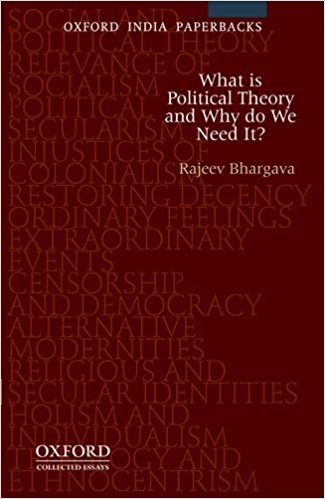This volume brings together two decades of Rajeev Bhargava’s scholarship, reflection and writing on varied themes that are at once familiar to those who have known Bhargava’s work and also certain other themes that are novel in the sense that Bhargava brings his theoretical insights to bear on hard-headed political questions of the day. From the varied chapters in this book there are three broad arguments or themes that emerge. The first argument is the need for a political theory that is more at home in India; the second theme is the attempt to understand recent questions of glaring injustice through the lens of political theory (Part III ‘In the Face of Injustice); and the third theme in which Bhargava revisits certain issues in the ‘Philosophy of Social Science’ (Part V).
The need for a political theory that is more at home in India emerges in chapter 3, ‘Is there an Indian Political Theory?’ and also in other chapters that deal with secularism (ch. 4), multiculturalism (ch. 5), religious and secular identities (ch. 11) and alternative modernities (ch. 12). Bhargava realizes that political theory in India has so far been characterized by a continuous looking up to the West, understood more specifically as the Anglo-American world. Bhargava is led to the crucial question: ‘Can political theorizing in India escape being derivative?’(p. 65). Bhargava admits that ‘political theorists were obsessed with reading western texts and thinking about them. We were commentators, at best rather poor analysts of texts that came to us from the North and which make up the cannon of western political philosophy’ (p. 65).

